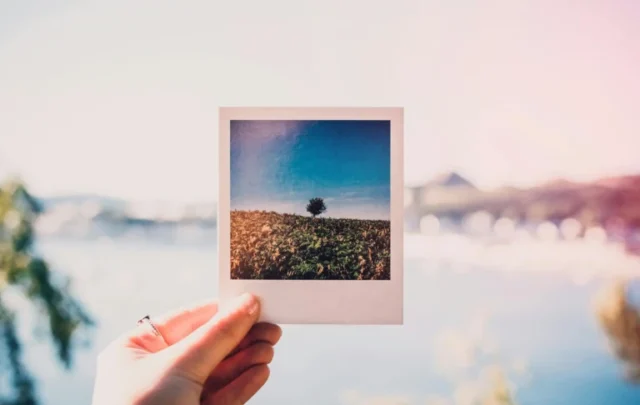The annual holiday celebrations have arrived and it seems a good time to think about what we are really celebrating. It seems the historic and religious significance of these holidays have been overshadowed by consumerism. Thanksgiving and Christmas have become celebrations of consumption filled with opportunities to eat, drink, and make merry with food and gifts. It is the time of plenty (often purchased on credit), but do we really recognize when we have plenty? Perhaps it’s time to pause and think about what our consumption means and if in fact, we are happier for it.
As William Blake once said
“You’ll never know what is enough, until you know what is more than enough.”
When we sit down to Thanksgiving dinner, will we have enough to eat, or will we have too much to eat? And for those who enjoy shopping on Black Friday, will you buy what you need, or will you buy more than you need because the price is too good to pass up?
I have many happy memories of family holiday celebrations. My mother and father loved to cook, and they entertained large family gatherings. Sad to say, it was also a family tradition to overeat during the holidays! Our home had a pantry off the kitchen, and I remember the counters filled with homemade pies, cakes, cookies, and bread. The dining room table, covered by a freshly ironed tablecloth, candles and flowers as centerpiece, held a feast! There was so much good food; we ate whether we were hungry or not. In fact we rarely waited until we were hungry to eat more. Meals followed meals as we feasted on left overs for many days. Maybe it was some deep distant Scandinavian impulse to feast before winter!
Even though my family didn’t have a lot of money, we always had plenty of food. We had a large vegetable garden, lots of canned and frozen foods, and my father caught abundant fish from the nearby lake. Though my grandparents often lacked for cash to buy things, as farmers, they never lacked for food. Born in 1899, the first generation of Norwegian immigrants who came here to start a new life; a farmer’s daughter, and then a farmer’s wife, my grandmother learned to be frugal. Her philosophy often repeated was “Waste not, Want not.”
Her children and grandchildren, however, were born into the booming industrial, post war world of abundant jobs, economic growth, and products meant to provide convenience. My mother would criticize Grandma for reusing plastic containers and bags, saying “Mom, these are meant to be thrown away!” But Grandma would say “Why throw away something that is still usable?” Prescient advice for today!
My husband and I grew up learning to value hard work and thriftiness, to save money and spend it wisely. We are products of the American Dream; born into large families in small rural communities, to middle class parents, the first generation to attend college, and as a result we have more affluence than our parents. Our education provided us with good jobs and we are fortunate to be able to buy the things we need and want. But even with the affluence that has come with success, we still consider our purchases carefully. “Waste Not, Want Not.”
What does this proverb mean for us today? ‘Waste not’ is easy to understand, as resources become limited it makes sense to conserve, to reuse and recycle. But what does it mean to “Want Not’? How can we stop wanting? When we are hungry we want to eat, and it is natural to appease our hunger. One day a friend said something that helped me better understand ‘Want Not’. He said “It isn’t about not wanting, it is about distinguishing the difference between needs and wants, and keeping wants small!” Suddenly it made sense to me; ‘Want Not’ is a way of evaluating my choices before I buy something. I stop and ask myself; “Is this something I really need or simply something I want?” Wants are not needs, they are often just cravings.
A Buddhist teacher, Sayadaw U Pandita wrote:
“All of us are slaves of craving. It is ignoble but it is true. Desire is insatiable. As soon as we get something, we find it is not as satisfying as we thought it would be, and we try something else. It is the nature of life, like trying to scoop up water in a butterfly net. Beings cannot become contented by following the dictates of desire, chasing after objects. Desire can never satisfy desire. If we understand this truth correctly, we will not seek satisfaction in this self-defeating way. This is why the Buddha said that contentment is the greatest wealth”
Or as Oprah Winfrey put it,
“Be thankful for what you have, and you’ll end up having more. If you concentrate on what you don’t have, you will never have enough.”
Every year I would ask my Grandmother what she wanted for Christmas. Her answer was invariably the same, “Oh, I don’t need anything. Just save your money, don’t spend it on me.” Of course, that wasn’t the purpose of Christmas, the purpose of Christmas was to give and receive presents! It was difficult coming up with a present for her when she wanted so little. I once asked her what she thought it meant to be rich. She said “Well, if I have a little left over at the end of the month, a little that I put away and save for a rainy day, then I feel rich.” She knew the blessing of contentment. She knew when enough was enough, and when more than enough was luxury.
Too many people today seem to be living unaware of how much we consume, even at the expense of others. Buddhist teacher, Thich Nhat Hanh, wrote
“The situation on Earth today has been created by unmindful production and unmindful consumption. We consume to forget our worries and our anxieties. But tranquilizing ourselves with over-consumption is not the way.”
We are encouraged to consume, to ignore limits, to pursue more and more as if enough is never enough. Economic growth at any cost! There was time, after the Great Depression, when our government through taxation limited the amount of wealth citizens could hold, recognizing the danger to democracy it represented. But today our government does little to limit the concentration of wealth and consolidation of power. Our government has forgotten how to govern wisely. Politicians no longer serve the greater good; instead they divide and conquer in the self-interest of reelection, working to benefit the special interests of people with wealth and power who keep them in office.
The wealth holders of the world are chasing after money, or more specifically return on investment. Growth at any cost gives return on investment! Investment has become a gambling casino controlled by the financial industry. Financial corporations sell high risk investment ‘products’ while misleading investors about the risk. Even when this behavior drove the global economy to the point of collapse causing the Great Recession, they were bailed out. The wealth holders have become too powerful, the financial institutions are no longer held accountable, the few have learned to privatize profits and socialize costs. It seems no matter how badly they behave they are too big to fail, or even to jail.
His holiness the 14th Dalai Lama described our lifestyle well when he wrote:
THE PARADOX OF OUR TIMES

Outwardly America may appear to have much wealth, but in reality we have little happiness or contentment. We consume more energy and resources per person than any other country in the world. And as long as we have a good job, money and access to credit, we continue to consume goods and services. We are encouraged by the media, by government and by ‘business as usual’ corporations to keep spending money, “keep consuming, keep our economy growing!” We are encouraged to believe this is the American Way!
Pope Francis clearly understands the complexity of the issues and the lack of widespread response when he wrote
“Obstructionist attitudes, even on the part of believers, can range from denial of the problem to indifference, nonchalant resignation or blind confidence in technical solutions. We require a new and universal solidarity.”
How do we change this system and reduce consumption? The definition of sustainability is “to satisfy our needs without jeopardizing the needs of future generations”. How can we sustain our lives in a way that all life on earth now and in the future can have access to the resources needed? What will we pass on to our children and grandchildren that will allow them to meet their needs, to have opportunities to live out their dreams?
Nature sustains life by creating and nurturing communities, and communities are about sharing, living in relationship with others. Cesar Chavez said,
“We cannot seek achievement for ourselves and forget about progress and prosperity for our community. Our ambitions must be broad enough to include the aspirations and needs of others, for their sake and for our own.”
We sustain community by being mindful of the needs of all life, human and non-human, sentient and non-sentient. We learn to limit our consumption through awareness, by recognizing the difference between needs and wants, paying attention to what we take and what we give. We learn to limit our consumption by keeping our wants simple, and more importantly by being thankful for what we have right now. As Garrison Keillor wrote,
“Thank you, dear God, for this good life and forgive me if I have not loved it enough. Thank you for the rain, and thank you for the chance to get up in three hours and go fishing. I thank you now, because I won’t feel so thankful then.”
Wealth in life is more than the sum of things we buy or sell, it is also a measure of the good we do in this world. Our contentment is found in simplicity; keeping our wants small and living within the limits of what the earth can supply. We live in a world where everything is interconnected; everything we touch was touched by someone before us, and will be touched by someone after us. Our interactions ripple out touching those we know and those we don’t know…today and tomorrow. Happiness comes to us when we find pleasure in taking only what we need and giving back what we are able.
All the world’s religions teach us to be generous, to share what we receive. So let this Thanksgiving be a  time to express our gratitude for what we have received and for what we are able to share with others. And let Christmas also be an opportunity to remedy poverty by sharing the gift of love, remembering the words of Mother Teresa of Calcutta. As Jesus Christ commanded those who would follow him
time to express our gratitude for what we have received and for what we are able to share with others. And let Christmas also be an opportunity to remedy poverty by sharing the gift of love, remembering the words of Mother Teresa of Calcutta. As Jesus Christ commanded those who would follow him
“…love one another; as I have loved you, that ye also love one another. By this shall all men know that ye are my disciples, if ye have love one to another.” John 13:34-35 (KJV).
May our holiday season be filled with health, peace, love and joy; and may we be blessed with the gift of contentment!






